Climate change in the face of war: Ukraine’s complex crisis
Ukraine’s crisis isn't about the conflict alone; it has also created devastating ecological impacts that continue to threaten people and animals within and beyond its borders.
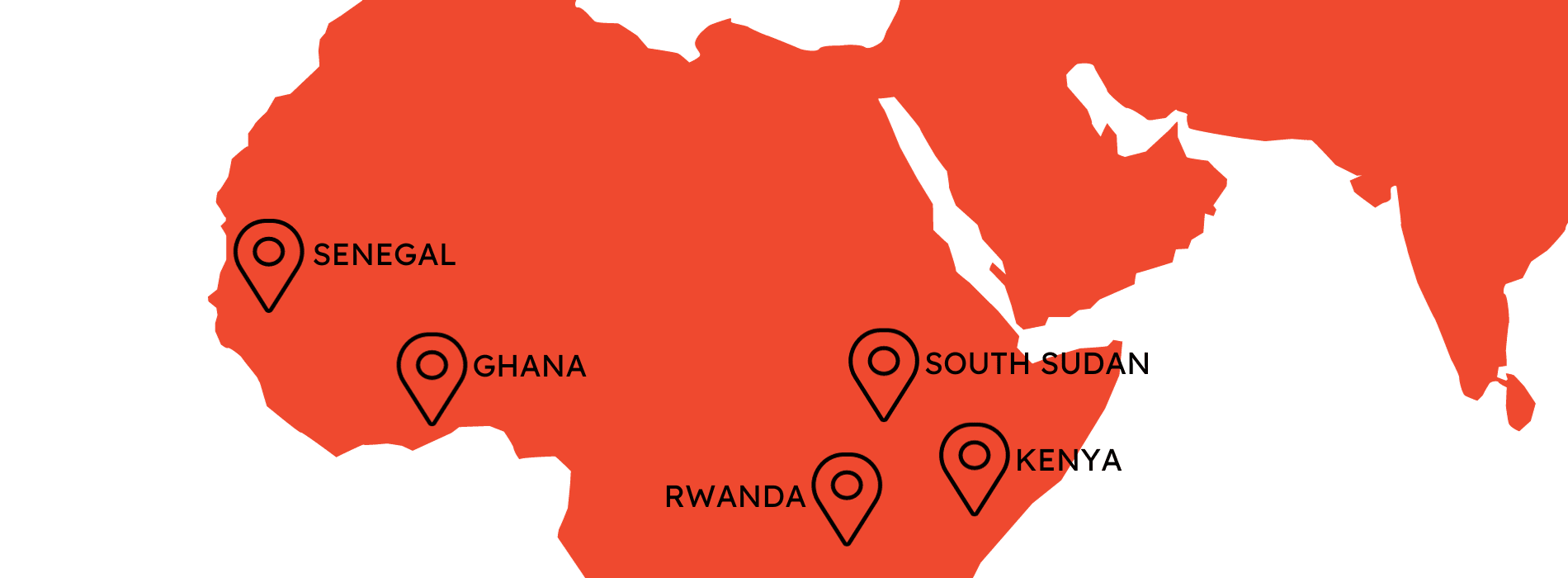
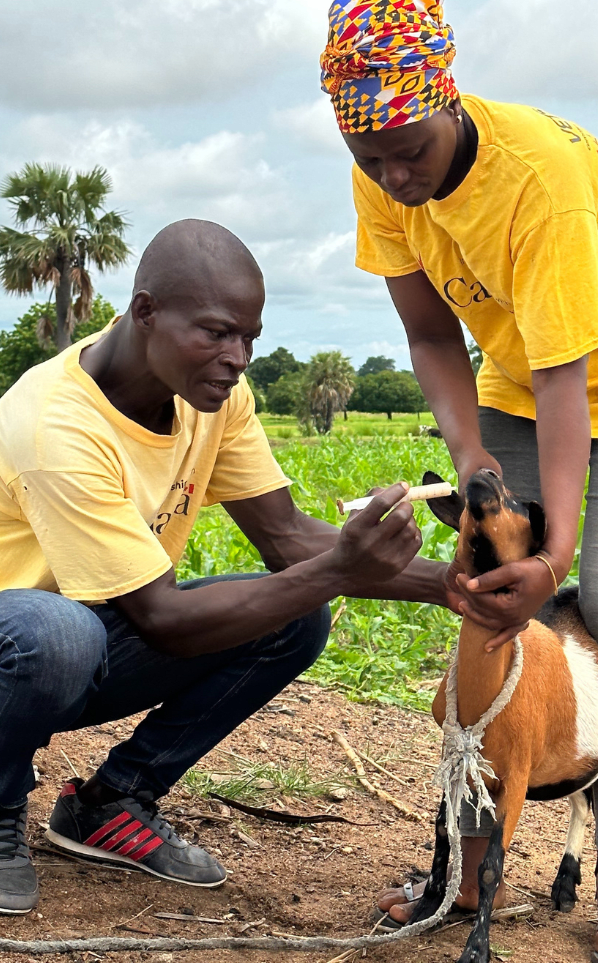
In Sub-Saharan Africa, investing in animal health is essential not just for the well-being of animals but also for the prosperity of the local communities that rely on them for their livelihoods. This region faces unique challenges due to climate change, which underscores the urgency of adopting sustainable and climate-smart agricultural practices.
At VWB/VSF, we are deeply committed to working hand-in-hand with local partners and communities in Sub-Saharan Africa through a range of One Health projects. One initiative is the extensive Volunteers Engaged in Gender-Responsive Technical Solutions (VETS) program, generously funded by Global Affairs Canada. From 2020-2027, this program will deploy 190 dedicated Canadian volunteers on behalf of VWB/VSF to Cambodia, Ghana, Kenya, and Senegal. The primary goal is to uplift the economic and social well-being of marginalized individuals, especially women and girls, in six countries across Africa and Asia.
In South Sudan, VWB/VSF's local team is working to implement interventions that strengthen agricultural resilience, reduce vulnerabilities, and enhance the capacity of local communities to cope with challenges at the national level.
Similarly, our Community One Health Empowerment Rwanda and Senegal (COHERS) program is in close partnership with local organizations. Together, we are working to improve health outcomes in rural communities, with a specific emphasis on marginalized women and girls. This initiative is dedicated to advancing public health, veterinary care, and environmental policies under a single, inclusive umbrella. Our approach balances the well-being of humans, animals, and ecosystems throughout the region.
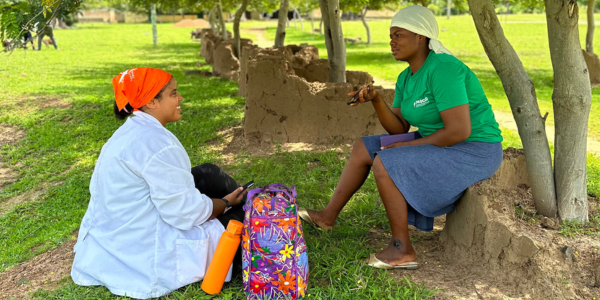
Global Affairs Canada
Using a traditionally rooted, free-roaming livestock ownership model, animals in Ghana are susceptible to rampant disease transmission, which can lead to severe health challenges and mortality.
Not only do these diseases impact animals and their owners through reduced animal outputs, income, and nutrient potentials, but also through the spread of zoonotic disease (diseases that can pass from animals to humans).
Through our Volunteers Engaged in Gender-Responsive Technical Solutions (VETS) program in Ghana, VWB/VSF is working with local partners to improve climate-smart, resilient agricultural practices that specifically target women farmers. The program is also supporting existing SEND and GAPNET projects in the Northern, Southern Greater Accra, Upper West, and Upper East Regions of Ghana.
VETS is also working with existing women’s groups in Ghana to support women in their food production/farming.
GAPNET, SEND
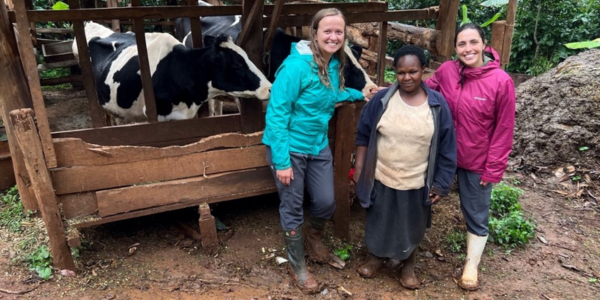
Global Affairs Canada
In Kenya, smallholder farmers dominate the dairy industry in; this means more households are involved in the Kenyan dairy value chain, as compared with other dairy farmers globally. For example, Canadian farmers may have hundreds of dairy cattle in one herd compared to the average smallholder Kenyan farmer’s 1-3 cattle. Because of this, the Kenyan dairy industry contributes to the livelihoods of many farmers, many of whom lack formal economic opportunities and are subsistence farming, wholly relying on livestock for income and nutrition.
Our Volunteers Engaged in Gender-Responsive Technical Solutions (VETS) program in Kenya works closely with two Kenyan dairies — Wakulima and Meru — to promote and support sustainable, inclusive economic development and enhanced employment opportunities for vulnerable groups, particularly women and youth.
This also includes integrated farming solutions, including training to encourage the use of sustainable fuel sources, (organic manure), the establishment of zero grazing units, the recycling of effluent water discharge and the planting of resilient fodder crops to improve soil fertility, minimizing deforestation and promote climate-smart agriculture.
Wakulima, Meru
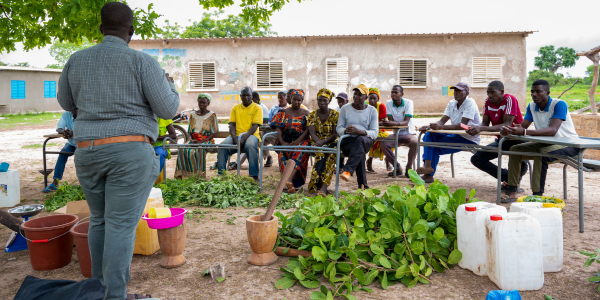
Global Affairs Canada
In Senegal, the Savannah landscape and climate lend themselves to livestock rearing as a core economic activity in rural areas, representing 5.5% of GDP and contributing to the livelihoods of 30% of households nationwide.
Health challenges related to high levels of human-animal interactions are compounded by human-caused environmental pressures. With the majority of the population in Senegal living in rural areas, the impacts of unsustainable farming practices and climate change are causing significant challenges.
With VWB/VSF's partner in Senegal, the Volunteers Engaged in Gender-Responsive Technical Solutions (VETS) program is aiming to improve partner capacity to deliver inclusive gender-equitable One Health programming at the community level.
We are providing training to farmers and other agricultural workers on herd health, flock management, and climate-smart agriculture practices. As well, we are supporting forest replenishment and better use of animal waste to improve soil fertility and increase crop production.
AVSF
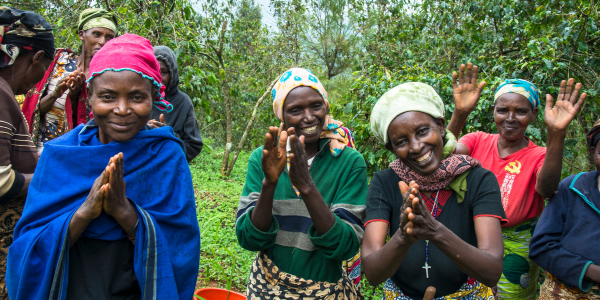
Global Affairs Canada
Community One Health Empowerment in Rwanda and Senegal (COHERS) is an initiative dedicated to advancing One Health Empowerment in Rwanda and Senegal. This program represents a comprehensive approach, combining public health, animal welfare, and environmental stewardship. It embraces a holistic One Health Model, uniting public health, veterinary sciences, and environmental policies to ensure the well-being of humans, animals, and ecosystems. Operating with on-the-ground partners and local community members in both Rwanda and Senegal, COHERS is contributing to international public health and sustainable development objectives.
Agronomes et Veterinaires sans Frontieres, Water Aid, University of Global Health Equity, University of Guelph and Institute Of Health Economics
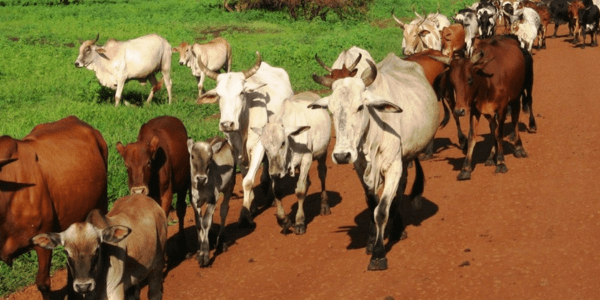
USAID, Zoetis Foundation
In South Sudan, VWB/VSF's on-the-ground team is working with local community members to enhance livestock farmers' food security and livelihood resilience, specifically in Torit County of Eastern Equatoria State (South Sudan). In these regions, traditional systems of producing livestock, such as goats, cows, and camels, and poultry (chicken), contribute significantly to local communities' socioeconomic well-being and food security.
Currently, our team is training farmers in modern agricultural practices, helping to distribute farm animals, conducting training on the prevention of zoonotic disease transmission, (diseases that spread from animals to humans), providing vaccination campaigns, training in animal disease surveillance, and more.
Ukraine’s crisis isn't about the conflict alone; it has also created devastating ecological impacts that continue to threaten people and animals within and beyond its borders.
#VETSVolunteerVoices aims to bring you the stories of our passionate VETS program volunteers from the field. This reflective blog was contributed by Maria Stanborough, a Communications Volunteer with our VETS program in Ghana in February 2024.
As we mark International Mother Earth Day in 2024, we explore how composting is revolutionizing the dairy sector in Kenya, fostering sustainability and resilience in the face of climate change.
